Earlier this year, WestJet unveiled the liveries and interiors of their new Boeing 787 Dreamliner aircraft, including a brand-new international business class and premium economy product. The introduction of these cutting-edge aircraft into their fleet signals the transformation of Canada’s second-largest airline from a low-cost carrier to a full-service national airline.
Today, WestJet has announced the first routes on which their new Dreamliners will be deployed: London Gatwick, Paris CDG, and Dublin.
The First Dreamliner Routes
Per Routes Online:
-
As of April 28, 2019, WestJet will operate daily flights between Calgary (YYC) and London Gatwick (LGW)
-
As of May 17, 2019, WestJet will operate thrice-weekly flights between Calgary (YYC) and Paris Charles de Gaulle (CDG)
-
As of June 1, 2019, WestJet will operate thrice-weekly flights between Calgary (YYC) and Dublin (DUB)
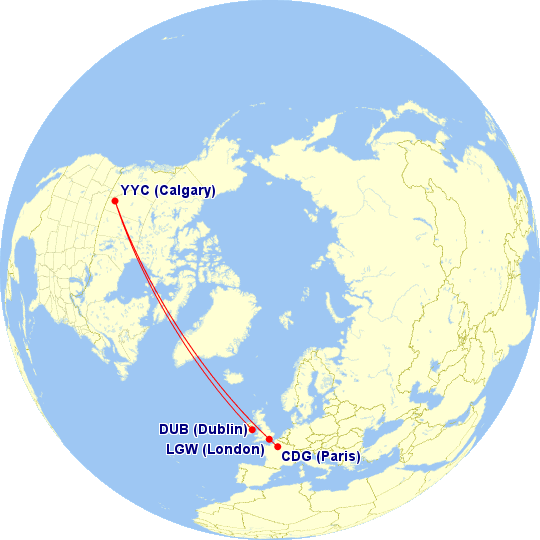
A few things jump out to me here.
First off, by launching their inaugural Dreamliner routes out of Calgary instead of markets with potentially greater demand such as Toronto or Vancouver, WestJet is doubling down on their treatment of Alberta’s largest city as their fortress hub. Indeed, WestJet CEO Ed Sims spoke of the decision to launch the 787 out of Calgary as a “huge vote of confidence in the local economy and in the airport.”
This move makes a lot of sense, since the success of WestJet’s growth strategy depends in large part on the success of Calgary as a market for tourism and business, given that Air Canada remains the dominant player in the country’s larger cities and it’s hard to see WestJet unseating them anytime soon. As Sims states in the press release:
WestJet is investing in Alberta to bring further economic growth, boost tourism to the province, and to further position our city as an international aviation hub. We are excited to bring Albertans to the world and the world to Alberta.
Furthermore, the new routes play to the strengths of the Boeing 787 aircraft type, whose fuel efficiency makes it ideal for “long and thin” routes. The Dreamliner is very much suited to flying long distances to secondary markets (such as Calgary) instead of just major cities, because even though the demand might not be quite as high, the aircraft’s efficiency still makes it eminently possible to operate these routes profitably.
Despite this, one would imagine that the next set of Dreamliners – to be delivered later in 2019 and throughout 2020 – will eventually operate out of Toronto and Vancouver as well. I can’t see WestJet persisting with the singular focal point of Calgary if they want to realize their longstanding vision of becoming a global airline with flights connecting Canada with Asia and Latin America.
Speaking of which, the other interesting thing to me is the choice of destinations to which the first 787s are being operated. Instead of opening up a brand-new continent for WestJet passengers, they’ve chosen to stick with flying to London, Paris, and Dublin – markets which they already serve to some extent (albeit the last two only seasonally, and not out of Calgary).
This is a conservative approach, but in my view the correct one. While new transpacific long-haul routes would no doubt be exciting, it would also be a huge maneuver into uncharted territory for WestJet at a time when they’ve already been making quite a few bold moves.
Operating the new planes on existing destinations serves to test out the long-term viability of these markets using the 787, while also allowing the airline to smooth out any operational kinks in advance of deploying the remaining planes on a wider scale.
The WestJet 787 Experience
As unveiled back in May, business class on the Boeing 787 comes with a cutting-edge hard product in the form of reverse herringbone lie-flat seats. Each seat is equipped with a storage console that offers ample surface space, touch-screen seat controls, in-seat power, and an 18” entertainment system.
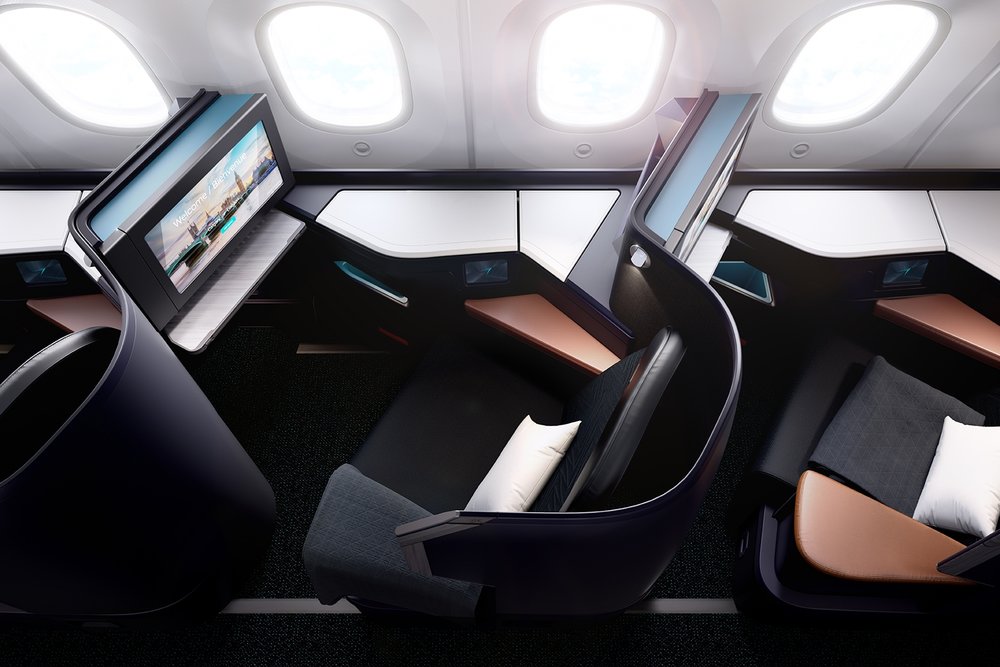
The soft product also promises to be revolutionary, with on-demand dining and turndown service included as part of the service proposition. I wouldn’t be surprised to see a few kinks in the implementation here, since these premium service elements can be quite tough to pull off operationally, but I do hope WestJet can deliver a successful rollout.
Premium economy seats will be arranged in a 2-3-2 configuration, with 38’’ of pitch at every seat, in-seat power, and unique menu offerings. There will also be a self-serve social area with snacks and beverages, similar to what many airlines offer in business class – another indication of WestJet’s firm intention to leap onto the playing field of premium international airlines.
Economy class is arranged in a 3-3-3 configuration, and each seat has 35’’ of pitch, which is more spacious than what you’ll find on Air Canada’s 787 economy class. Throughout every cabin, the uniquely Canadian-inspired design elements are clear to see, drawing upon the colours and patterns of Canada’s beautiful landscapes.
How to Book the WestJet 787
Bookings on the new WestJet 787 went live earlier today, and there seemed to have been some very short-lived introductory pricing on the new routes, including some decently attractive business class fares:
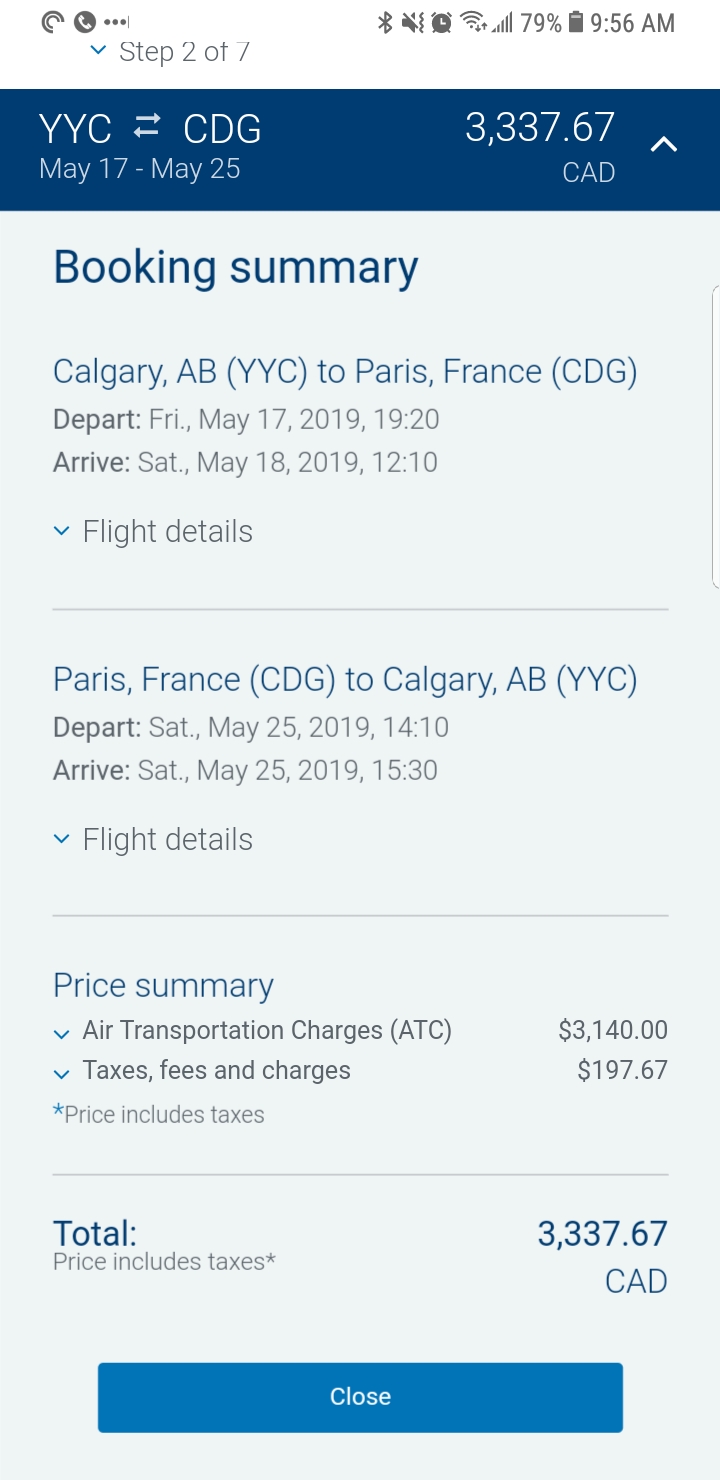
However, those fares have since mostly disappeared and been replaced with much higher fares, which I can’t imagine anyone who pays out-of-pocket for their travel would find attractive:

In the opposite direction (from Europe to Calgary), there seem to be quite a few decent discounted business fares still available:
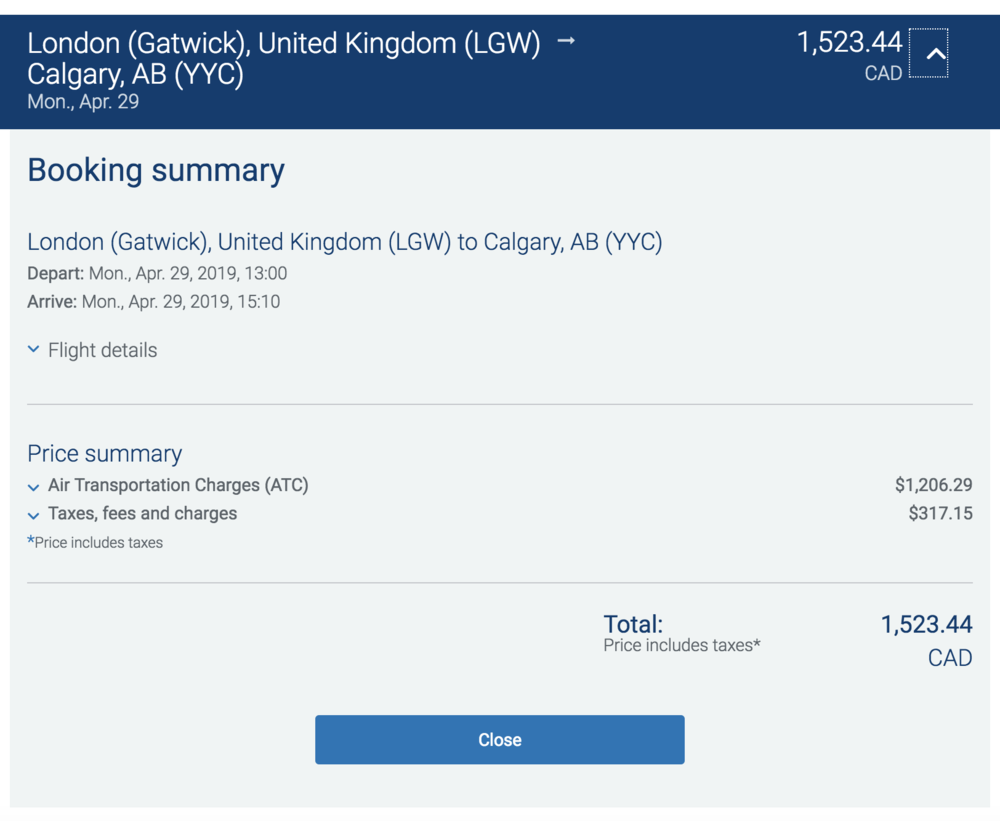
Of course, the real question on most of our minds is whether or not we’ll be able to redeem miles for tickets on WestJet business class, and if so, which types of miles we’ll be able to redeem, whether there’ll be any fuel surcharges, etc. Unfortunately, the fact that WestJet isn’t a member of any airline alliance makes this question quite tough to answer at the moment.
In theory, you should be able to redeem your WestJet Dollars (WSD) for travel on the new Boeing 787 routes, and that’s going to be a viable option for those of you looking to travel in economy class or perhaps premium economy.
Companion fares from the WestJet RBC World Elite MasterCard should also be redeemable on these flights, meaning that if you book a trip on the new planes in either economy class or premium economy, a second passenger can travel together with you for only $399.

But for business class trips whose cash fares cost $10,000 round-trip (and whose cost in WSD would be therefore in the seven-figure range), that’s not going to be a realistic option.
Now, the loyalty space is another area in which WestJet is seeking to make new moves in the near future, having signalled an intention to move away from the existing WestJet Rewards by announcing a new loyalty program, Ampli, in conjunction with RBC. Details on the new program are sparse, but one would hope that the program follows the traditional model of allowing select premium seats to be booked with miles at excellent value.
Meanwhile, Delta and WestJet also have a partnership in place, so in theory, we’d be able to redeem Delta SkyMiles for travel on WestJet’s new 787 business class at more reasonable rates. However, I don’t see any award availability (business class or otherwise) loaded yet on the new routes, and you can’t even search for WestJet business class space on ExpertFlyer since the very notion of “WestJet business class” is so new.
We’ll have to wait a bit and see whether award availability indeed gets introduced on these new routes, and I’m sure the situation will be closely monitored by those of us who are excited to try out the new Canadian business class product on the block.
Given the relatively premium-light cabin configuration (there are only 16 business class seats on each flight), though, I have a feeling we’ll see another round of discounted business class fares much sooner than we’ll see wide-open award availability.
Conclusion
I’m tremendously excited to see WestJet taking their first steps towards a new identity as a global full-service airline. The arrival of Boeing 787 Dreamliners to the WestJet fleet is exciting news for Canadian travellers, especially those based in Western Canada who now benefit from the added connectivity to Europe via Calgary. I do hope to fly the new WestJet business class soon after it launches!






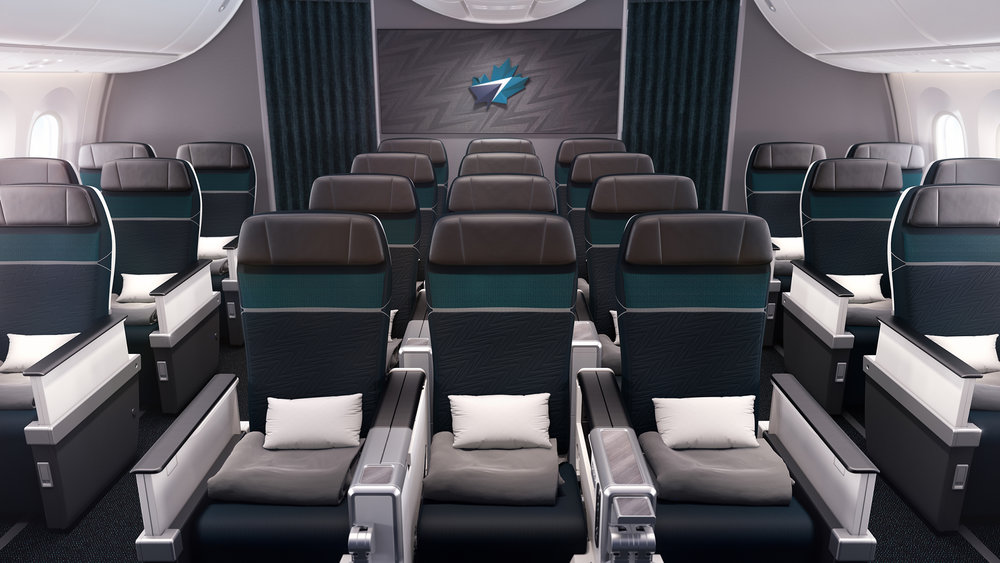
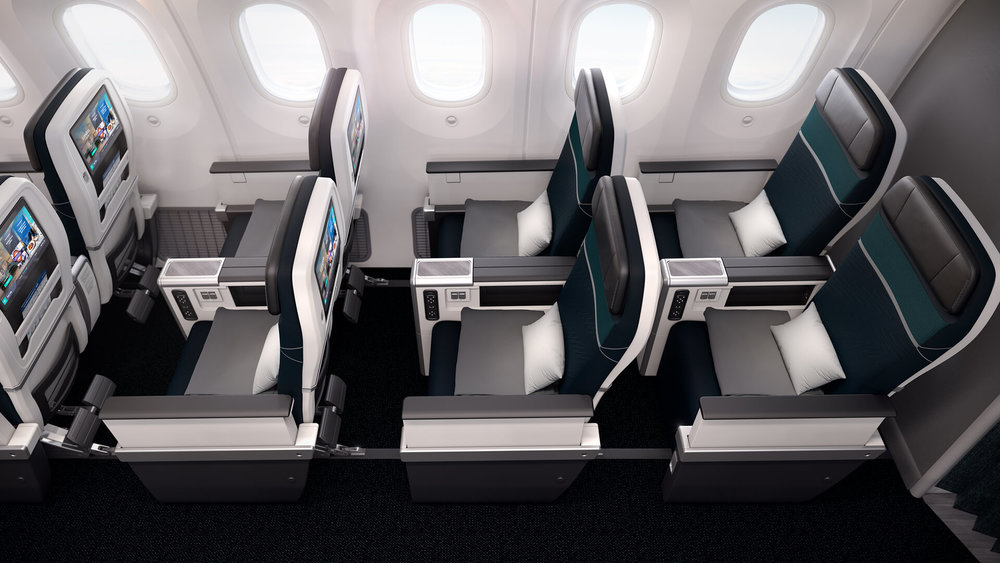

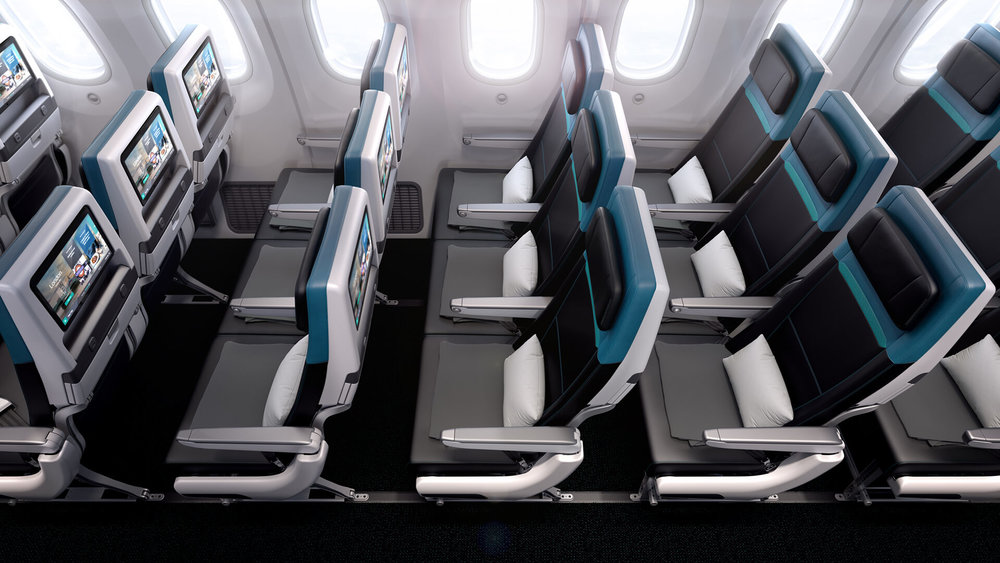














YYC’s total passenger count is not really that far behind YUL’s and at one point was larger until AC started launching a crap ton of international flights from YUL. Now, YUL has a lot more international traffic than YYC (it’s more than 50% at YUL and only 30% total at YYC including transborder). Obviously the population will result in more O&D as well. YYC was chosen because it’s WestJet’s largest hub; and like AC, it hopes to route more traffic thru YYC (a lot more) than regular O&D would provide. Although certainly smaller than YYZ and YVR, it’s a stretch to call YYC a secondary airport – it’s 4th largest and depending on WS’s plan, could overtake YUL again in pure passenger numbers.
Thanks for this analysis. I suppose my thinking was more in terms of local population numbers, in which Calgary lags behind the big three metropolitan areas quite significantly, although I do agree that though-traffic can contribute significantly to an airport’s passenger numbers as well. Looking at flight distances, routing through Calgary from Western Europe to the US West Coast is a shade shorter in distance than routing via the East Coast, so I could definitely see this working out to WestJet’s benefit if they time the flights right for onward connections.
While true in pure population Calgary lags, the combined metro of Calgary (1.4 million) and Edmonton (1.2 million) exceeds Greater Vancouver (2.4 million). From this analysis alone Montreal (3.6 million) should be a lot busier, but it’s not – it has less passenger traffic than Vancouver and Calgary is nipping at its heels in overall traffic. But, as I said, YUL has way more international traffic which is more important in terms of airport importance.
Correction – Edmonton is 1.3 million.
Just checked WestJet website, there are indeed only 16 business class seats on the 787 Dreamliner. That’s still a low budget airline move to me, I mean I can’t image that’s happening on a 787 Dreamliner (very modern advance fleet). I guess it will be hard to score a award seat on the WestJet Dreamliner as they don’t have that many available anyways. Shake my head, WestJet…
@Jerry – how does having a full J with on-demand dining and turn down service in any way represent a low-budget airline? The fact that WestJet has made the cabin largely economy rather than J or W is a safe bet to me. Do you really think it’s prudent for an airline to jump in with 30 J and 28 W seats that AC has is really that smart? If you do, it speaks more to the fact that you don’t understand airlines more than WestJet is a "budget airline".
"I guess it will be hard to score a award seat on the WestJet Dreamliner as they don’t have that many available anyways"?
WestJet makes every seat available for WSD redemptions – every single one.
I find it a safe bet as well, although to be fair WSD redemptions vs. award redemptions are quite different – the former is essentially paying cash, and isn’t really a useful way to book full-fare business class seats.
Still, having only 16 business class seats on 787 Dreamliner is unacceptable. Major airlines won’t do that even that’s the more profitable way to do. You are right, I will stick with air Canada to keep my SE 100K status. For award redemption, I mean by miles or points. I don’t have any WestJet dollars anyways. Anyways, great info from you.
I agree with both of you to some extent – 16 seats is quite a small business class cabin, and it feels to me as a rather measured approach on their growth towards a full-fledged international airline.